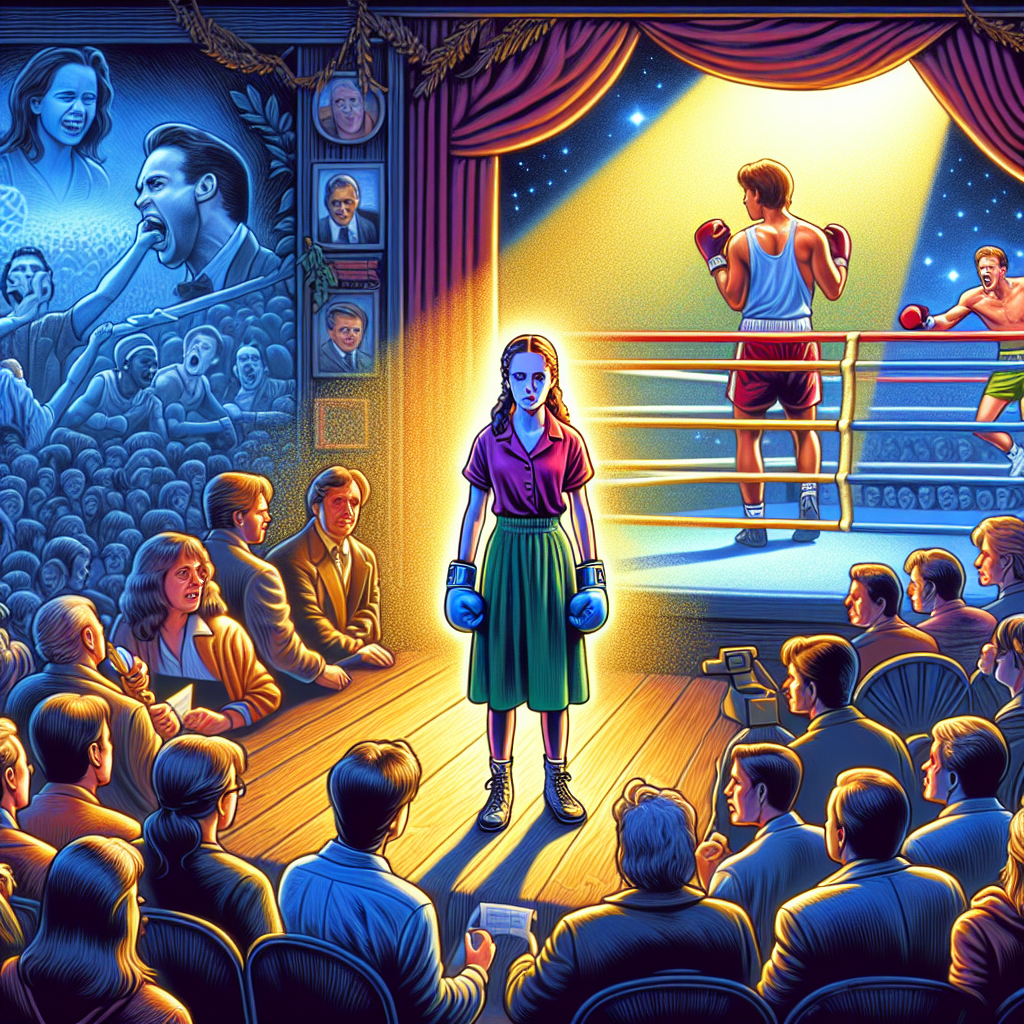Sydney Sweeney Takes a Swing at Upcoming Oscar Season with Boxing Biopic 'Christy'

There’s something almost tragically poetic about the way Hollywood relentlessly churns out biopics, especially those clawing at the Oscar's hemline, desperate to catch a whiff of acclaim. Sydney Sweeney’s latest venture, “Christy,” a boxing biopic, feels like yet another flicker of light attempting to pierce the ever-looming darkness of formulaic cinema. The story of an underdog fighter stepping into the ring could pulse with raw, visceral grit, but too often, these films end up as sanitized noise, glossed with the shiny desperation of awards bait.
The very notion of a boxing biopic is drenched in clichés—the relentless training montage, the motivational speeches that crash over like waves of forced positivity, the emotional scars barely scratched beneath the glossy surface. And yet, there’s a strange allure to this cycle, as if the repeated story of “fighting for glory” somehow feeds a collective existential hunger. Sydney Sweeney, undeniably talented and radiating her own brand of youthful intensity, steps into this bleak theatrical ring armed with hope and ambition, but one can’t help but wonder—will "Christy" be another shadow melting into the crowd, or will it manage to punch through the ennui saturating this genre?
Watching trailers and reading the inevitable buzz reveals the paradox of “Christy”: a hopeful narrative dressed in the attire of struggle, yet oddly disconnected from the authentic pain of fighting for survival. Boxing, in reality, is brutal—not just physically but emotionally. Here, it seems tailored to fit neatly within the Oscar season’s checklist—strong female lead, overcoming odds, poignant moments of vulnerability—all wrapped in an inspirational bow. The attempt to manufacture a “knockout” performance can sometimes backfire, leaving the story feeling more like a hollow echo chamber than a heartfelt exploration.
The darkness lurking beneath the struggle of a fighter’s life is often swept away by Hollywood’s need to sanitize, to ensure audiences leave the theater with a lighter heart and uplifted spirits. But what about the shadows? The exhaustion that no amount of willpower can erase, the haunting silence after the crowd’s roar fades, the loneliness wrapped in bruises and sweat? In the dystopian theatre of life, those are the moments that sting the deepest, yet rarely invite the spotlight in these biopics. Instead, we get the triumphant crescendo, applauding the narrative of victory while quietly ignoring the more somber symphony of failure and despair that usually accompanies it.
Sydney Sweeney’s involvement might bring a fresh, darker edge to this formula, given her past ventures into complex, morally ambiguous roles. There’s a chance she could drag this story closer to the raw, gritty reality boxing embodies—where pain is the currency, and the fight extends beyond the ring into the solitude of the soul. But even that hope feels fragile, as if dancing on a tightrope stretched thin across Hollywood’s safety nets. Biopics like these flirt with darkness but rarely dive deep, often content to trace the surface, pretending it’s enough.
It’s tempting to see “Christy” as a metaphor for the industry itself—a brutal arena where fighters (or actors) step into the ring, knowing the odds are stacked, the bruises inevitable, but still compelled by the faint hope of transcendence. The boxing ring, much like the film industry, is riddled with promises and broken dreams, where pain and performance blur, and the audience’s gaze becomes both savior and executioner. Hollywood’s obsession with narratives of struggle and redemption often feels like a vacuum, sucking in stories and pumping out glossy, predictable epics stripped of their soul.
What cinema needs now isn’t another tale of triumph, another flick flickering in the constellation of Oscar contenders, but a reckoning—a willingness to embrace the darker, messier realities that enrich storytelling. To step beyond the conventional scripts that paint resilience with broad, antiseptic strokes, and instead illuminate the shadows that define human struggle. Boxing, with all its bruises and blood, is the perfect canvas for such an exploration. Sadly, mainstream films rarely dare to linger on the wounds hidden beneath the surface.
In the end, Sydney Sweeney’s “Christy” might just be another breath held in anticipation before the inevitable sigh of recognition or dismissal. It’s a story echoing through a void, where every punch thrown is a desperate attempt to cut through the noise. Perhaps it will surprise, shaking the foundations of the clichéd biopic format with something raw, visceral, and authentically dark. Or perhaps it will slide silently into obscurity, just another shadow passing on the walls of cinema’s grand arena. Either way, the fight itself remains compelling, not because of guaranteed victory, but because of the endless, haunting beauty found in the dance of struggle and survival.
The bright lights of Oscar season will soon dim, leaving behind echoes of cheers and silence. And somewhere in that quiet aftermath, the true essence of stories like “Christy” waits—not in accolades, but in the shadows where pain and poetry collide.

